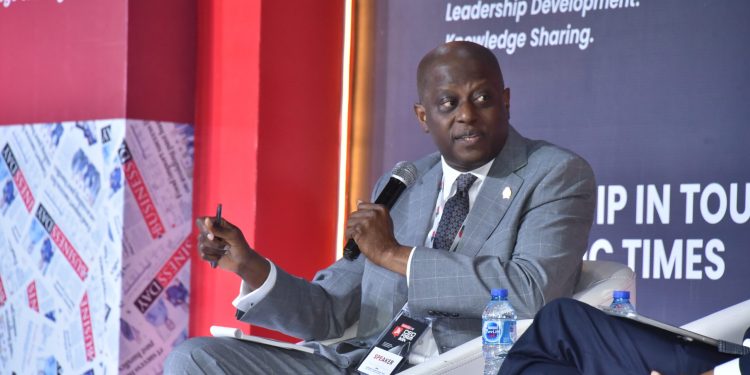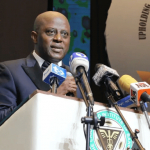The Central Bank of Nigeria (CBN) is determined to bring inflation down to single digits in the medium to long term, Governor Olayemi Cardoso said on Thursday. He acknowledged that while the recently rebased Consumer Price Index (CPI) reflects economic realities, the current headline inflation rate of 24.48% remains too high.
Speaking at a briefing on the first Monetary Policy Committee (MPC) meeting of the year, Cardoso emphasized that the CBN is carefully reviewing the rebased CPI figures from the National Bureau of Statistics (NBS) and will publish its own findings in due course.
The MPC opted to maintain key monetary parameters, including the Monetary Policy Rate (MPR) at 27.50% and the asymmetric corridor around the MPR at +500/-100 basis points. The Cash Reserve Ratio (CRR) remains at 50% for Deposit Money Banks and 16% for Merchant Banks, while the Liquidity Ratio stays at 30%.
Cardoso explained that recent macroeconomic trends, such as exchange rate stability and moderating fuel prices, influenced the decision to hold interest rates. However, the CBN remains cautious about inflationary pressures, particularly rising food prices.
“We will certainly stay the course. We will be vigilant. We will not take anything for granted. Inflation has been too high for too long,” he said, reaffirming the bank’s commitment to reducing inflation to single digits over time.
The governor stressed that achieving this goal requires stronger coordination between monetary and fiscal authorities. He highlighted the importance of collaboration, noting that recent engagements, such as the Monetary Policy Forum, have brought fiscal and monetary policymakers together to align their strategies.
“I will be deceiving you to say the fiscal will do it on its own, the monetary will do it on its own. It won’t be. The coordination has always been important, but at no time can it be as important as now,” Cardoso stated.
Cardoso also pointed to CBN reforms that have improved market confidence, stabilized the naira, and increased foreign reserves to $39.4 billion as of February 14, 2025—enough to cover more than nine months of imports.
Key reforms include the Electronic Foreign Exchange Matching System (EFEMS) and a new FX code, which have curbed speculative trading and strengthened the foreign exchange market. The unification of exchange rates, elimination of round-tripping, and removal of foreign interbank transaction spreads have further stabilized FX flows and maintained a positive balance of payments.
As of the third quarter of 2024, Nigeria’s current account balance stood at $6.06 billion, reinforcing the country’s external position.
With these measures in place, the CBN remains optimistic about its path toward economic stability and inflation control.










